Confederate Truths: Documents of the Confederate & Neo-Confederate Tradition from 1787 to the Present.
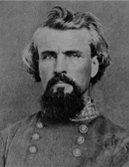

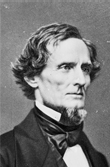
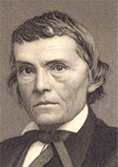


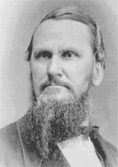
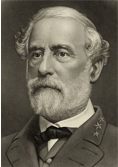
Mildred Rutherford explains how the civilization of the Old South was destroyed
The following is an extract from an address titled, "The Civilization of the Old South: What Made It: What Destroyed It: What Has Replaced It," given by Mildred Rutherford as Historian General of the UDC to the UDC convention in Dallas, Texas, November 9, 1916 in Municipal Hall, The McGregor Co. Printers, Athens, Georgia.
Notice her excuses for lynching in the South and her defense of the Ku Klux Klan.
[Page 29]
How Was the Civilization of the Old South Destroyed?
The XIII. Amendment in 1865 set free in the midst of their former owners nearly 6,000,000 slaves, totally unprepared for freedom and while a factor it was not the greatest factor in destroying the civilization of the South. The men of the Southern army returned to their desolated homes, having taken the oath of allegiance in good faith, and were ready to accept, without a murmur, this amendment when it came.
The planters began to parcel out their land and start their negroes in life as farm tenants. Their affection and interest in their negroes would not only have assured their protection but would have caused their being fed until self-supporting, and other Southern men would have also adjusted themselves to new conditions. Had they then been left untrammelled, matters would have been quickly adjusted. There might have been some friction, but far less than followed under reconstruction policies. The old masters would have helped their faithful negroes to buy homes and to prepare themselves for freedom. The negroes had confidence in their owners and would not have questioned their advice. They could have made better terms under these conditions than were made by false friends under the Freedman's Bureau.
The men of the South would not have given them civil or political rights until they were prepared for them. They would not have given them social equality, for this the negro did not desire, until false friends from the North urged it upon them as a right, and even then, nor now, do the better class of negroes desire it. The negroes would have been given school opportunities and an education befitting the race would have been given to them. They would not have been given instruction in Greek and Latin and higher mathematics, except to those desiring to teach and to preach, but the majority would have been prepared for life along industrial lines.
[Page 30]
The North, at this time, blundered greatly by allowing Thad Stevens and his Committee to issue the "Exodus Order" which separated the negroes from their old owners, and to place in the South the Freedman's Bureau with the promise of "forty acres and a mule"—encouraging shiftlessness!
This unwise policy was the real blow aimed at the overthrow of the civilization of the Old South. The men of the South were then put under military discipline which actually tied their hands and only the Ku Klux, the "Chivalry of the Old South," could break these bonds that fettered them.
The negroes began rapidly, to leave their homes, because; they had been told that they would be kept in slavery still if they did not. Strange negroes came in their stead and the trouble began—for, by the Freedman's Bureau, the part of the negro was always taken against the whites, whether right or wrong. Men and women who never had done menial work now had to learn, rather than contend with impertinent negroes they had no power to punish. Many had no money to pay for help and the negroes had no desire to work. They were waiting for some one to support them.
The South blundered in allowing the North to supply the teachers for the negro schools. These teachers should have been the white people or the negroes of the South.
"School marms" came down, impressed with the missionary spirit, to help these "poor benighted blacks," to keep them from being downtrodden and imposed upon, and they gave to them a taste of social equality which spoiled them for service in Southern homes.
One of these teachers invited "Aunt Mandy," calling her Mrs. Brown, to come in to sit with her, saying she was lonely. "Are you going?" asked "Ole Mis'"
"Law, ‘Ole Mis' ', you know I aint goin'! Them white folks that wants me to set with them aint the white folks I wants to set with."
This was the thought of the aristocratic negro of the Old South.
Mammy, being told that Pres. Roosevelt had invited Booker Washington to lunch with him, said,
"Surely Booker Washington had better manners than to set down to the white folks' table?"
"No, he didn't, Mammy, he went in and took lunch with Mr. Roosevelt."
[Page 31]
"Oh! I am ‘shamed of Booker Washington—his mammy ought to have taught him better manners than that."
"But, Mammy, suppose it had been you, and Pres. Roosevelt had insisted upon it, what would you have said?"
"Oh! I would have said, ‘Scuse me, Mars Roosevelt, I ain't hungry."
And that is just the answer a Southern negro aristocrat would have made. They had an aristocracy just as marked as the whites had, and this aristocracy the whites respected.
Rena was asked to take dinner at the University where her daughter received her diploma. She accepted the invitation but when she found that she was to sit at the table with the white members of the faculty, she slipped out of the room, saying "My little nigger can eat with white folks but I can't."
The helplessness of the negro at the time of freedom was pathetic. He was a little child in his dependence. He had no need for money, for he once had supplied to him the things money would buy for his needs, so when he received his money for wages he spent it as a child.
The first driver my father was forced to hire, a year after the surrender, had to be furnished a suit of clothes and hat and shoes before he was presentable on the carriage seat. Yet when he was paid his first month's wages of $10, $8 was spent for an accordion and the remaining $2 for fire crackers, which like a child he quickly fired.
A Northern man who bought one of the Southern plantations noticed an old negro man helping himself to fire wood. He asked him one day where he bought his wood.
"It's jest this way," he answered, "My pa was coachman at the Big House over there, and he pa and he pa so there's no need for one gentleman to ax another gentleman whar he gits his wood." "Ole Marster" had always given his wood so this old negro had no idea he was stealing.
That wood was his by right of service from his family was the teaching of the carpetbaggers after the war. To steal from a negro was a great sin, they said, but no sin to steal from white people for all they had the negroes made. The Southern people suffered grievously from this teaching. They saw with real distress how, under false teaching, the negroes were being alienated from them and being harmed, not helped. The negroes under false advisers resented any interference from Southern whites, and the situation became terrible—far worse
[Page 32]
than is pictured in "The Birth of a Nation," horrible as that is. It was not only a time of real oppression, but also a time of repression, suppression and fearful humiliation. The South lost $2,000,000,000 by loss of slaves together with confiscated and destroyed property. The South was also left with a bonded war debt of $300,000,000.
It is really refreshing to realize, even at this late day, that some of the leading negro leaders are conscious of the mistakes that have been made and are willing to acknowledge it.
A leader named Wilkins, at Little Rock, Ark., in 1915, said on Emancipation Day:
"We are foolish for celebrating, an event which has meant nothing to us but humiliation, persecution, alienation, degradation, obloquy, scorn, and contempt.
We are celebrating a day that never took place and you know it as well as I do.
But some things did take place on that day. Our Southern white friends fed us, clothed us, and administered to us. Let us not forget that, but rather celebrate that. Remember now, those of you who think Lincoln's Proclamation set us free, that if it did, it was our white friends that kept us from starving."
Pres. Lincoln's Emancipation Proclamation never freed the negro nor did Lincoln expect it to. It was a political move against the seceding states to force men at the North to re-enlist, and in the hope that it would make Southern men return to protect their families from negro insurrection and thus end the war, and to induce foreign nations to refuse to acknowledge the Confederacy.
Not a negro in the states that did not secede was freed by Lincoln's Proclamation and it had no effect even in the South as it was unconstitutional and Lincoln knew it. Many in the North resented it, and Lincoln was unhappy over the situation as Lamon testified. The negroes were freed by an amendment offered by a Southern man and, did not become a law until after Lincoln's death. It really is a farce for negroes to celebrate Emancipation Day.
By the freedom of the slaves and the estrangements that followed between them and their former owners the civilization of the Old South gradually passed away.
Mark Twain said, "The eight years in America, 1860-1868, uprooted an institution centuries old, and wrought so profoundly upon the national character of the people that the influence will
[Page 33]
be felt for two or three generations." Mark Twain was a Southern man and knew what he was talking about.
Chas. E. Stowe, the son of Harriet Beecher Stowe, said: "If you ask me if the slaves were better off under the institution of slavery than they are under freedom, I must, in candor, answer that some were better off for they were not fit for freedom."
Again he said, "If slavery was an unutterably evil institution, how can you account for the faithfulness of the negroes on the plantations when the men were at the front, and no act of violence known among them?"
Senator Vance said, "The negro has made more progress in one hundred years as a Southern slave than in all the three thousand years intervening from his creation until his landing on these shores." (Dowel's Life of Vance; p.253.)
Gen. Armstrong, a Northern man, said: "While slavery in the South was called the sum of all villainies, it became the greatest missionary enterprise of the century."
When the slaves were freed, we turned them over to the North an orderly, fairly industrious race, practically without disease or crime, and the North felt they were worthy of social and political equality, and so legislated.
The negroes then were one-half the population of the South. The statistics in regard to illiteracy at the South has greatly vilified the South because in the statistics were the 6,000,000 slaves who, with few exceptions, could read or write.
At the surrender, the South had nothing but the ground upon which to stand, and yet began to be heavily taxed to educate this mass of blacks as well as the whites. Justice has never been given the South—for what she did at this time and what she is still doing.
Read Winthrop Talbot's article in December North American Review, (1915) and see what part of the country has the brand of illiteracy today. It will be found that the New England States, the Middle States, and the Northern Staten are the sufferers under present statistics regarding illiteracy.
The South, according to the statistics of 1911, had spent on the negro $120,000,000 for education. (Report of Dr. Harris, Commissioner of Education.) That sum has largely increased in the six years that have followed.
What progress has the negro made in those fifty years? He has as a race, note that I say as a race, become disorderly, idle, vicious and diseased. There are three times more criminals
[Page 34]
among them today than among the uneducated native whites; one-half more criminals than among the foreign whites, and 7/10 of the negro criminals are under thirty years of age—so slavery can in no wise be held responsible for that.
When such abuse comes from the North about lynching and crimes in the South, do they realize that only 1/60 of the population of the North is negro, while more than 1/2 in the South is negro, and in many localities in the South it is 9/10 negro. Isn't it radically unfair to bring the charges upon violation of mob law in Georgia—and am not defending mob law—I think it awful wherever found—when they never seem to realize that the home of mob law was in New England and other Northern States
Was not Garrison dragged by a mob in the streets of Boston? Did not New Englanders mob officers of the National Government for trying to enforce the law?
Wasn't Lovejoy put to death by a mob in Boston?
Did not New Yorkers massacre men, women and children and burn 19 negroes? Was a negro ever burned in a Southern State? Was not Philadelphia the home of mobs at one time?
Did not a mob burn an orphanage in Philadelphia and kill women and children?
Was not a negro chained and burned at Wilmington, Delaware.
Was not a negro hanged by a mob before the court-house door at Urbana, Ohio?
Did not a mob with dynamite bombs defy the police in Chicago and not one offender brought to justice
Will those newspapers so unjust to Georgia, and to the South as a whole, look into those mobs at Akron and Springfield, Ohio; Danville and Springfield, Illinois; Evansville and Rockport, Indiana; and Coatsville, Pennsylvania, and in states much nearer to them than Georgia? Will they not inquire into statistics and truthfully find out, if they are honest enough to admit it, that there have been more mobs proportionally to negro population in the North than in the South, and most of the violation of mob law is because of the negro!
They ask continually, "What's the matter with Georgia?" I can tell them the matter, for I am a Georgian. Georgia is surpassing those states so rapidly in prosperity that the eye of political jealousy is fastened on her.
The South is willing to be just and give to all justice, but she
[Page 35]
will ever resent injustice—and the cry against the South in regard to this matter is gross injustice. The Chicago Tribune said, "The South is a region of illiteracy, blatant self righteousness, and unless new blood is infused in the South it will continue to be a menace to the American Nation." My, where did this editor come from? He must be related to Medill of Chicago, who Lincoln said caused him to declare war, by arming Fort Sumter. There are some in the North who wish to deprive the South of the right to manage any of her own affairs.
Pres. Wilson sees a great danger to the South coming from this tendency to a centralized government and stands squarely for State Rights. The South, under present conditions, cannot afford to surrender her state rights. If she should, a worse than Reconstruction Period would follow, and no Ku Klux can protect her.
The North disfranchised the illiterate Indians, the illiterate yellow man, the illiterate negroes in her midst before the war, yet, after the war, the North enfranchised 6,000,000 illiterate negroes in the South. This was not just.
Has the negro as a race been benefited by freedom. Now understand I said as a race. Unhesitatingly, no!
While the educated negro has made rapid progress and some have accomplished great things for which they deserve high commendation; some have accumulated much property; some have built good homes; some are well to do; some have made good citizens and some have made good teachers, good preachers, good physicians, good dentists, good dressmakers—and some are training their children well—but, take them as a race, they are undoubtedly weaker today physically, morally and religiously. The negroes are realizing this and are grieving over it. They are fast decreasing as a race while the white is fast increasing.
The white race on the other hand is decidedly better off since freedom; it is the negro which has suffered from sudden emancipation. The South has never been so prosperous as it is today, showing what an incubus slavery was upon the slaveholder.
Just as in 1820 the eyes of political jealousy were turned upon the Slave States because of their prosperity and prominence in the control of the affairs of the government, and State Rights were aimed at by the Missouri Compromise, so today the eyes of political jealousy are again turned to the South because of its unparalleled prosperity and prominence in government affairs, and a combined effort is being made to destroy State Rights,
[Page 36]
and the surprise is that many Southern men and women are abetting the movement.
We of the South—as much as we have been forced to bear from the impertinent and shiftless negro of freedom—can never and must never forget the faithful negroes of slavery. In my volume of "Tributes to Faithful Slaves" I have some very touching incidents that have come under my own personal observation.
I was in Lexington, Va., and, on entering the gate of the cemetery, I saw a monument to DAVID McKINLY erected by PETER FLEMING, HIS FORMER SLAVE. Peter returned to his old home, after many years, to find his old master dead, and the family not able to put a monument over him, so he asked permission of the family to order a monument and to pay for it himself.
Near to Stonewall Jackson's monument it the same cemetery in a lot the master and slave sleep side by side, "awaiting the Resurrection."
"To the memory of SAMUEL HAYS in loving remembrance for faithful service this stone is erected by the desire of his master."
In another lot side by side with her mistress "ELIZA SMITH A FAITHFUL SERVANT" sleeps.
When at Petersburg, Va., in the Old Blanford Cemetery, I saw there another monument among the whites erected to "A BELOVED OLD MAMMY."
An old ex-slave was found in Washington City hunting for "Mars Sherman" because "Mis Clio, his "Mistis," had told him to thank Gen. Sherman for not burning her home at Cartersville, Ga.
"Mis' Clio," from Augusta, Ga., had been Sherman's sweetheart when he was at West Point. When the old negro heard that Sherman had been dead many years, he burst into tears, saying, "I promised ‘Mis' Clio to thank him."
As long as one of the old regime lived they were always so polite, so humble, so proud, so loyal, so true. Few there are that still remain.
Let us then the children and grandchildren of the men who wore the gray stretch out a kindly hand to the children and grandchildren of those who were the faithful protectors of our mothers and grandmothers in the days that tried men's souls, and make them to understand that we want them in the South,
[Page 37]
and that the South is their logical home, and that understanding each other as we do, we can work for the things that are best for both races.
They are fast realizing that they cannot accomplish anything worth while without the sympathy and co-operation of the white people of the South. The faithfulness of their forefathers has never been surpassed in the annals of servitude, and those faithful ones had no part in bringing about the present state of affairs.
The good will between the races white and black in the South must be rebuilt upon the foundation laid in the days of slavery. This foundation was severely shaken by the storm that beat upon us in Reconstruction Days and the days that followed. Let us hope that it has not been wholly destroyed.
At Fort Mill, S. C., Capt. S. E. White erected the first monument to faithful slaves—no doubt, many more will be erected throughout the South.
At every Confederate Reunion, some of the old slaves who went with their masters into camp to wait on them and forage for them are still to be seen. Every opportunity was given these negroes to cross the lines to the enemy. Has any such desertion been recorded? Every slaveholder that was able to bear expenses was allowed to take his valet with him to the army.
"THE BIRTH OF A NATION" will do much to enable the white people of the South to right a wrong to the negroes, for the negroes represented there, with the exception of old Mammy, were not our faithful negroes that guarded our homes, but they were the bad runaway negroes that had fallen under the influence of the carpetbagger and the scalawag, and to whom had been given guns to kill and destroy, and I do not wonder that the negroes resent the Play for these young negroes of today know nothing of the history of those times—I would like to tell them about it, for I lived then and know the truth.
The adjustment period was fearful in the South, and was another great factor in destroying the old civilization. The women of the Old South were forced then to learn, not only to cook, to wash and iron, but to do the most menial forms of household drudgery. The kitchen in the Old South was never attached to the house. Water had to be drawn from a well or brought from a spring, often entailing labor and great inconvenience, for waterworks were unknown, and wood stoves were just introduced, very few were able to possess one before the war. The cooking was largely done in open fireplaces, with pot hooks and ovens, so wood
[Page 38]
had to be cut and ashes cleared away. Tallow candles and lightwood knots and, occasionally, sperm candles for company, and lard lamps were the dependence for lights—so all of these things had to be adjusted.
So many men, the heads of the house, had been killed in battle or died in prison. How could the mother, in the kitchen away from the house, continue to gather the children for family prayers.
How could hospitality, for which the Old South was so noted, continue under such changed conditions—with no servants to do the work, and often no money to hire any or to buy necessary provisions.
The education of the children was taken from the home and private schools to the public schools. There had been no public schools under the old regime in the South. A Southern gentleman resented having the State educate his child—but the changed condition forced this upon him, and it humiliated him. Free schools in the South had been only for those too poor to pay tuition or to employ a tutor.
How could the husband rushing off to his business office, and children rushing off to school keep up that conversation around the family board so conducive to culture?
Adjustment to new conditions came gradually. The kitchen became a part of the house; the introduction of waterworks relieved the labor of drawing the water; gas and electric stoves and the fireless cooker make now the preparation of meals a less perplexing question; gas and electricity have revolutionized the light situation; so the women of the South today are as independent as their northern sisters and far ahead of them in dealing with colored help, for say what you will, the women of the South knowing the weaknesses of these people can better sympathize with them, and they do treat them with far more consideration than the people of other sections. There is no doubt that the negro finds his truest friends in the South, and that, too, with no social equality ideas to upset him.
Again, Wilkins said: "There would have been no friction between the Southern people and the negroes, if left alone. The friction came from the carpetbaggers who came to alienate us from our friends and teach us impossible ambitions. When he had secured his ill-gotten gains, he left leaving us to meet the storm of an outraged manhood."